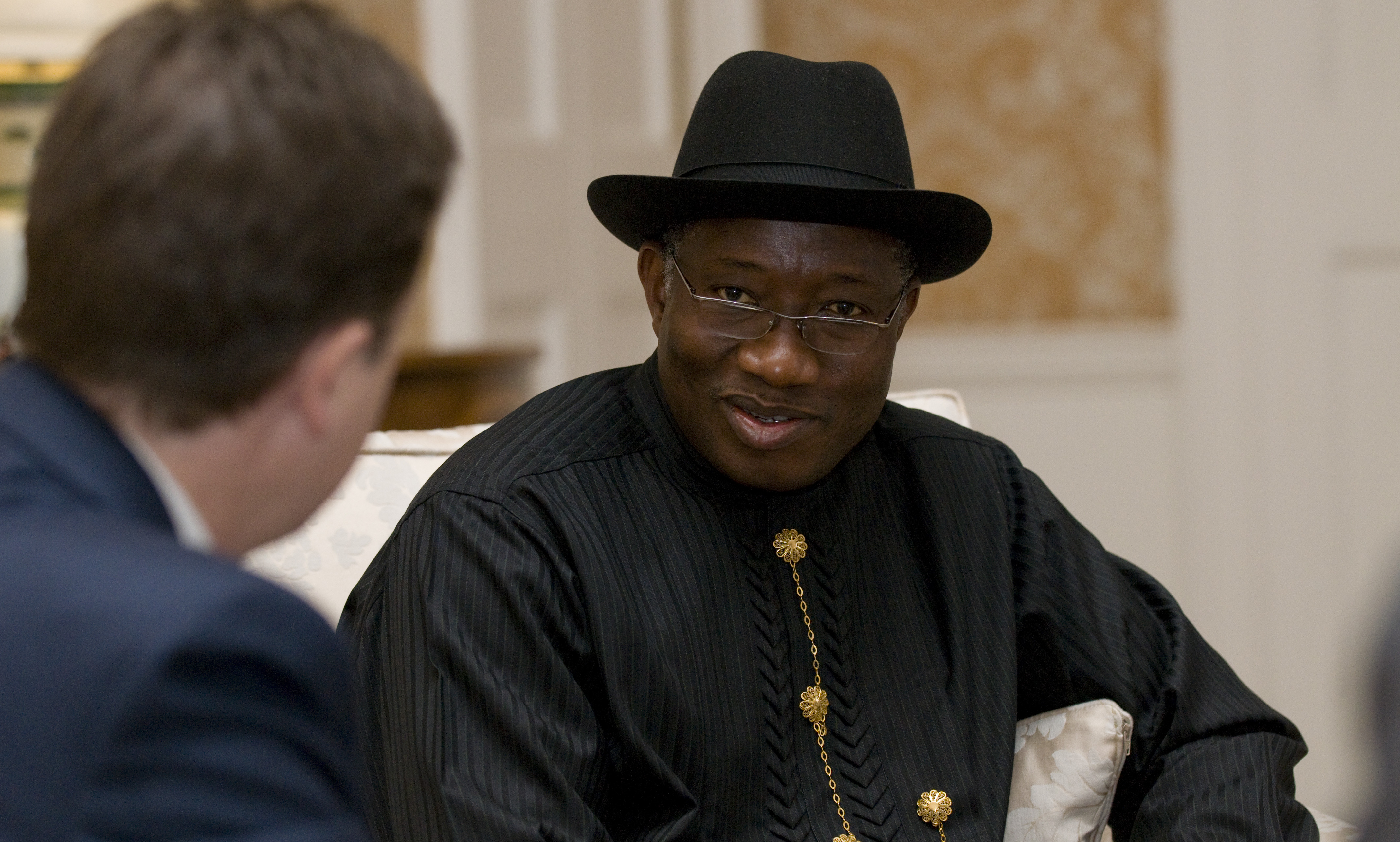Valentine’s Day was another day of broken hearts, this year in Nigeria. February 14 was scheduled to be the date of the upcoming presidential and parliamentary elections, “tipped to be the closest since Nigeria returned to civilian rule in 1999;” however, the elections were postponed following Boko Haram violence. US intelligence officials have warned that “the shadowy jihadist group has seized roughly 30 villages and towns over the past year and is now capable of going ‘toe-to-toe’ with Nigerian military forces.” As tensions with the militant terrorist group Boko Haram reach a critically high point in the country, increasing pressure is placed on the presidential elections; The outcome will be influential in determining the future of the fight against the terrorist group.
2015 marks twelve years since Boko Haram’s first attack in Nigeria, a 2003 assault on police stations. With the increasing frequency and severity of attacks in the past year, change for Nigeria is now a necessity, yet President Goodluck Jonathan has far from lived up to his seemingly promising name.
Resentment toward Jonathan has grown increasingly prevalent as the conflict with Boko Haram has intensified. His government has been unable to institute a comprehensive, effective strategy to combat the group, and people are frustrated with such lack of government effectiveness. International public opinion shifted markedly out of favor with Jonathan after his “slow” reaction to the kidnapping of the 276 schoolgirls last year.
Sentiment in Nigeria seems to suggest that Jonathan is failing to deliver as president to take action to protect the country against Boko Haram. Angry mobs “hurled stones at [Jonathan’s] convoy” last week in protest. A resident of the town through which he was passing commented, “People were angry with the huge military deployment for the president [for the publicity event], while Boko Haram continues to run over [neighboring] towns and villages.”
Others feel that Jonathan has failed to demonstrate strength in the face of terrorism, allowing Boko Haram to gain traction and force. Barnaby Ahiligwo – originally from Akokwa in the East of Nigeria, and now living in Chico, California – is the father of a fellow Brown student and spoke with me about the current political landscape and public sentiment in Nigeria. He expressed disappointment and frustration with Goodluck Jonathan’s leadership. He said, “I think he has done a bad job because he has exhibited weakness. Being president you should be able to take a stand, yet he has been very weak in all fronts, and that’s why Boko Haram is still here. That is the basis of Boko Haram, they know that he is weak and doesn’t have any political clout.”
In response to this perceived weakness, there has been a rise of vigilantism in the past year, meaning increased action by large groups of citizens who have risen up to serve as an informal civilian army. These groups have been active participants in the fight against Boko Haram. Just this past week, “hundreds of Boko Haram militants descended upon the town of Maiduguri,” and were confronted by vigilantes who pushed back the Boko Haram fighters and were thereby solely responsible for saving the town.
The vigilante groups are widespread and, in some cases, interconnected. The particular vigilante group based in Maiduguri is part of the “Civilian Joint Task Force,” a “battalion of volunteer combatants who organized to defend their homes from the Islamist militants…with homemade arms and self-taught counterinsurgency strategies…”
Yet the vigilante groups cannot be the ultimate solution. Untrained and incohesive, the vigilante groups’ objective is unclear – are they fighting solely to defend citizens against Boko Haram or are they working to solidify a more formal role of leadership and power? What’s more, they fall prey to some of the same moral downfalls as the terrorist group they aim to combat, like unnecessary violence and the recruitment of child soldiers. Mr. Ahiligwo commented, “the idea of vigilantism is supposed to be very good. But in Nigeria, the vigilantes gained power and started mistreating their powers. The idea is good but the implementation is wrong. They have been able to abuse their power, and all of a sudden they have become mini-gods. They have become stronger than the police; They have become their own judges, and that’s not what you really want.”
The country looks then to the postponed elections to elect the leader that will regain control – from both Boko Haram and from the vigilante groups – and reinstate order and security in the country.
Goodluck Jonathan is up for reelection against General Muhammadu Buhari, who previously led Nigeria from January 1984 to August 1985 following a military coup. The verdict on his leadership is “mixed.” His “war against indiscipline” strictly fought to limit corruption, but also perpetuated severe human rights abuses. General Buhari nevertheless defends his actions, “It is up to the people…The military came in when it was absolutely necessary and the elected people had failed the country.” Perhaps he sees the crises of this year as calling for a similar need to stand up and take leadership again.
On the one hand, a military leader could bring about the discipline and strength that the country needs. Yet General Buhari’s potential election brings about its own problems, notably the undeniable flaws marking his last term as leader of the country. Mr. Ahiligwo noted, “I don’t think he’s the best person to take [Jonathan’s] place…He was president 30 years ago, so what makes him think he can come back as president after so much time? He isn’t right for the job right now, his time has passed. Don’t we have more capable hands that will do a better job than him?”
The next few weeks will be critical for the future of Nigeria, and Nigeria can hope that Goodluck Jonathan, on the precipice of potentially being unseated, will take a stronger stance as leader in order to effect change and mend some of the country’s wounds.
